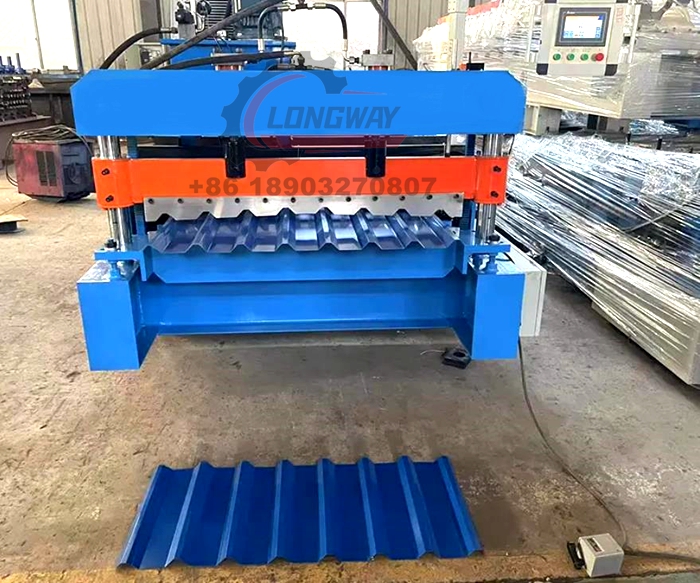roll forming machine for sheet metal
Roll Forming Machines for Sheet Metal An Overview
Roll forming is a continuous bending operation in which a long strip of metal, usually sheet metal, is passed through a series of rolls that progressively shape it into a desired cross-sectional profile. This process is widely utilized in various industries for producing components such as roofing, siding, and framing. Among the key equipment used in this process is the roll forming machine, which plays a crucial role in ensuring efficiency, precision, and quality of the final products.
Roll Forming Machines for Sheet Metal An Overview
One of the significant advantages of roll forming machines is their ability to produce high volumes of product with precise dimensions consistently. This is particularly important in industries where tolerances are critical, such as automotive and construction. The continuous production nature of roll forming also contributes to a reduction in material waste, making it a cost-effective solution for manufacturers.
roll forming machine for sheet metal

Moreover, roll forming machines can accommodate a variety of materials, including stainless steel, aluminum, and galvanized steel. The selection of material often depends on the end product's application. For example, aluminum is favored for its lightweight properties and corrosion resistance, making it ideal for applications in the automotive and aerospace sectors. On the other hand, galvanized steel is commonly used for roofing and siding due to its durability and ability to withstand harsh weather conditions.
Automation and technological advancements have significantly improved the efficiency of roll forming machines. Many modern systems are equipped with features such as programmable controls, which allow operators to adjust the machine settings quickly for different product profiles. This flexibility enables manufacturers to respond swiftly to market demands and changes in customer requirements without incurring excessive downtime.
Additionally, some roll forming machines come with integrated quality control systems. These systems utilize sensors to monitor the dimensions and shapes of the formed products in real-time, ensuring that they meet specifications throughout the production process. By identifying any deviations early, manufacturers can minimize waste and maintain high-quality standards.
In conclusion, roll forming machines have become an indispensable tool in the manufacturing landscape for sheet metal products. Their ability to produce high-quality components efficiently makes them essential in various industries. With ongoing innovations and advancements in automation, the future of roll forming technology looks promising, paving the way for even greater efficiencies and possibilities in sheet metal processing. As industries continue to evolve, roll forming machines will undoubtedly play a pivotal role in shaping the products that drive our modern economy.
-
Roof Panel Machines: Buying Guide, Types, and PricingNewsJul.04, 2025
-
Purlin Machines: Types, Features, and Pricing GuideNewsJul.04, 2025
-
Metal Embossing Machines: Types, Applications, and Buying GuideNewsJul.04, 2025
-
Gutter Machines: Features, Types, and Cost BreakdownNewsJul.04, 2025
-
Cut to Length Line: Overview, Equipment, and Buying GuideNewsJul.04, 2025
-
Auto Stacker: Features, Applications, and Cost BreakdownNewsJul.04, 2025
-
Top Drywall Profile Machine Models for SaleNewsJun.05, 2025








